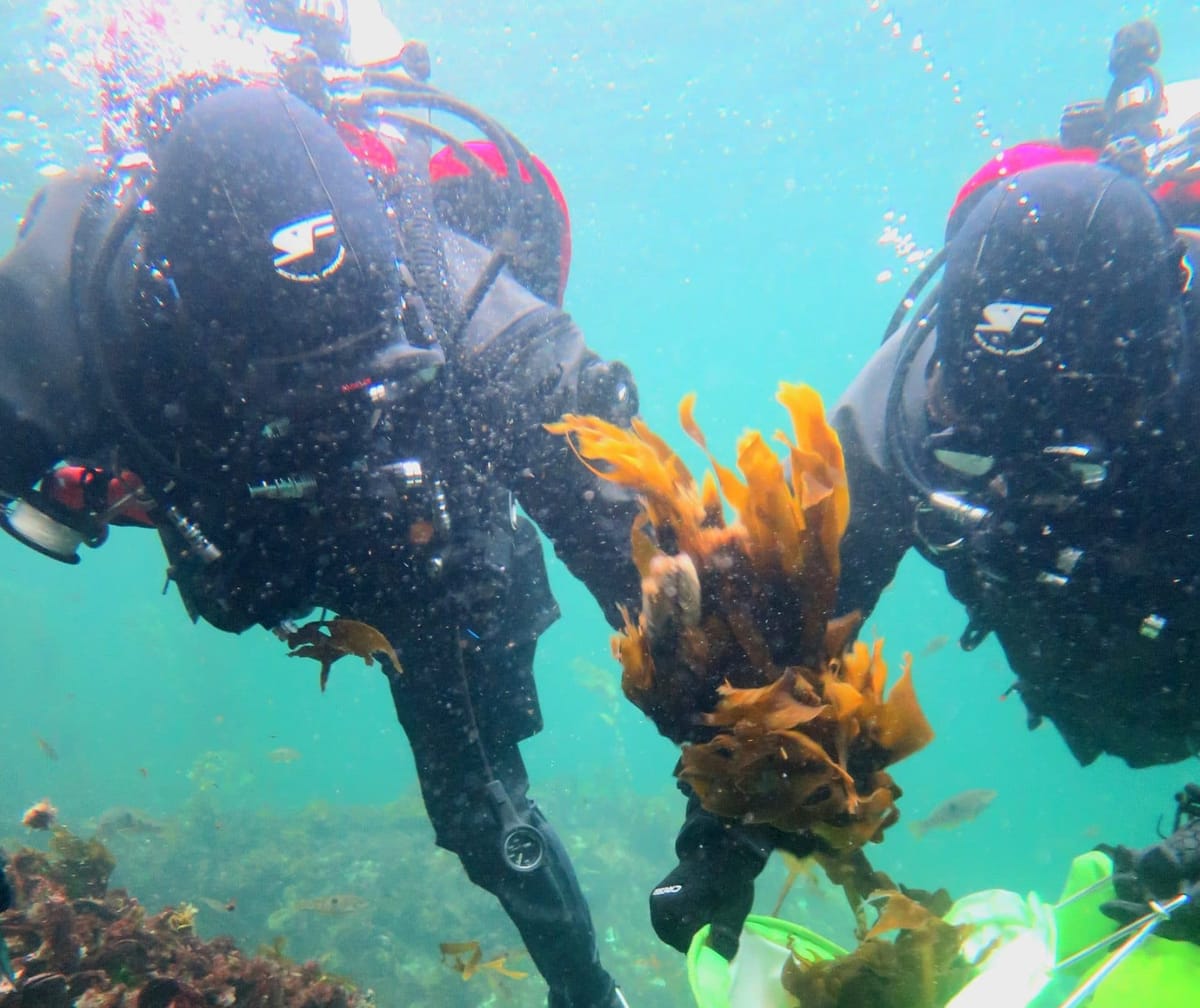
The battle against ‘the gorse of the sea’ is off to a strong start after year one of the Jobs for Nature Fiordland Undaria Control Programme has come to a close.
During the first year, divers removed 30,000kg of the invasive weed from more than 25km of coastline in Te Puaitaha/Breaksea Sound.
The programme is funded by the Department of Conservation and managed by Environment Southland. Removing Undaria from Fiordland is essential because it threatens the marine environment with its ability to quickly establish and outcompete native marine species.
Environment Southland marine team leader Kathryn McLachlan said the programme allowed for more intensive protection of Fiordland’s marine area.
“Fiordland is known for its stunning and pristine waters and colourful marine life. Without the Jobs for Nature funding we received to operate the Undaria control programme, this species would continue to outcompete native species and change the ecosystem forever.”
The programme trained a team of thirteen divers to scientific certificate of competence standard, many of whom had no previous dive experience.
“We were able to provide more than 3650 hours of work to local Southland businesses and an additional 1650 hours of work to Covid-affected contractors from around New Zealand. The control programme has provided a great opportunity to contribute to the economic resilience of Fiordland while maintaining our objective to contain Undaria to Breaksea Sound and eliminate it from Chalky Inlet,” Ms McLachlan said.
Following completion of their training, the Environment Southland dive team began operations in Te Puaitaha/Breaksea Sound in December 2021.
With the support of a team of contracted scientific divers, the Environment Southland dive team spent the first two weeks completing some initial surveys to estimate the extent and density of the Undaria and to trial various methods for removing the biomass.
They then spent the following months removing the weed and disposing of it on land in the Fiordland National Park, where it is naturally decomposing.
The divers concluded their first season of work in Te Puaitaha/Breaksea Sound in April. Work is now focused on surveying the distribution of Undaria along the Southern coastline, with a final two weeks of removal and follow-up surveys scheduled for Te Puaitaha/Breaksea Sound in mid-June.
